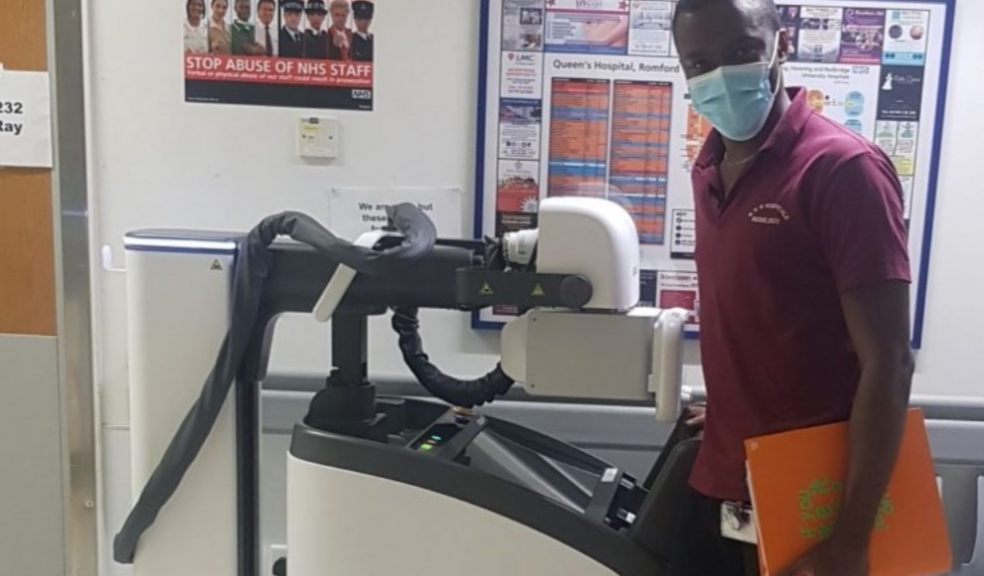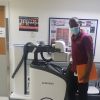
NHS degree apprenticeships with University of Exeter go from strength to strength – despite COVID-19
There are now 200 organisations working with the University of Exeter on degree apprenticeship programmes, which combine work with part-time study – allowing for on-the-job experience while students work towards a degree qualification.
NHS employees enrolled on newly launched degree apprenticeship programmes in Diagnostic Radiography, Clinical Associate in Psychology and Senior Leader Healthcare during 2020, raising the total number of NHS apprentices to 203 – up from 29 this time last year.
The success comes amid challenging circumstances, with the Covid-19 pandemic forcing some employers to furlough or redeploy apprentices in response to the crisis, and programme directors having to move swiftly to online teaching to ensure apprentices kept working and studying.
Degree Apprenticeships offer an alternative entry route into a profession to a diverse range of learners while allowing those already working in the field to upskill.
Oluwole Adeyiga (pictured) is a Radiography apprentice who works at Barking Havering and Redbridge NHS Trust.
Speaking about his experiences on the programme, he said: “Firstly, I am really indebted to this scheme and appreciate that the programme can continue, despite the pandemic, as it’s so beneficial.
“Secondly, the university mentors and workplace mentors have been fabulous in their methods of delivery despite the pandemic and the little time they all have had to adjust to IT. They have been so supportive and prompt with replies to emails and forums.”
The apprenticeship route into radiography builds on the success of the BSc (Hons) in Medical Imaging, teaching strong clinical skills and supporting work-based learning.
Dr Christine Heales, Senior Lecturer: Medical Imaging and Programme Director for the BSc (Hons) Diagnostic Radiography and Imaging Degree Apprenticeship, said she is proud of the motivation shown by apprentices and how they’ve continued learning in the workplace throughout the pandemic.
Dr Heales added: “It is particularly rewarding seeing people who, for a variety of reasons, couldn’t have studied a conventional degree now being able to embark on a route into the profession of radiography.”
Professor Janice Kay, Provost and Senior Deputy Vice-Chancellor at the University of Exeter, saluted the NHS employees who are making progress despite difficult circumstances, and the enormous effort made by teaching and professional staff to ensure the transition to online learning went smoothly.
“The university is proud to offer a number of Degree Apprenticeships in support of upskilling NHS staff, as well as supporting new entry routes in skills shortage areas such as Diagnostic Radiography, which we launched in March 2020 and the Clinical Associate in Psychology programme, which enables graduates to work in mental health pathways in the NHS,” Professor Kay said.
“We salute the NHS employees who are carrying on with their professional development against the very challenging backdrop of COVID, looking at innovation and best practice in their chosen fields.
“We are also very proud that the delivery of all 10 of our Degree Apprenticeship programmes at Exeter successfully moved to online delivery and that all of the apprentices are making progress on their chosen degree programmes, thanks to the enormous effort made by our teaching and professional services community here at Exeter.”
The 10 employers with most degree apprentices studying with the University of Exeter are (in descending order), the NHS, JP Morgan, Visa, UBS, IBM, the University of Exeter, Devon County Council, Goldman Sachs, Laing O’Rourke and BT.
The University of Exeter is committed to expanding its degree apprenticeship portfolio, with the aim of increasing student choice and access to higher education.
Other Degree Apprenticeship programmes with the University of Exeter include Academic Professional, Chartered Manager (BSc), Civil Engineering (BEng), Digital and Technology Solutions (BSc), Financial Services Professional (BSc), Research Scientist (Data Science MSc) and Senior Leader (MBA).
For more information see here.




















